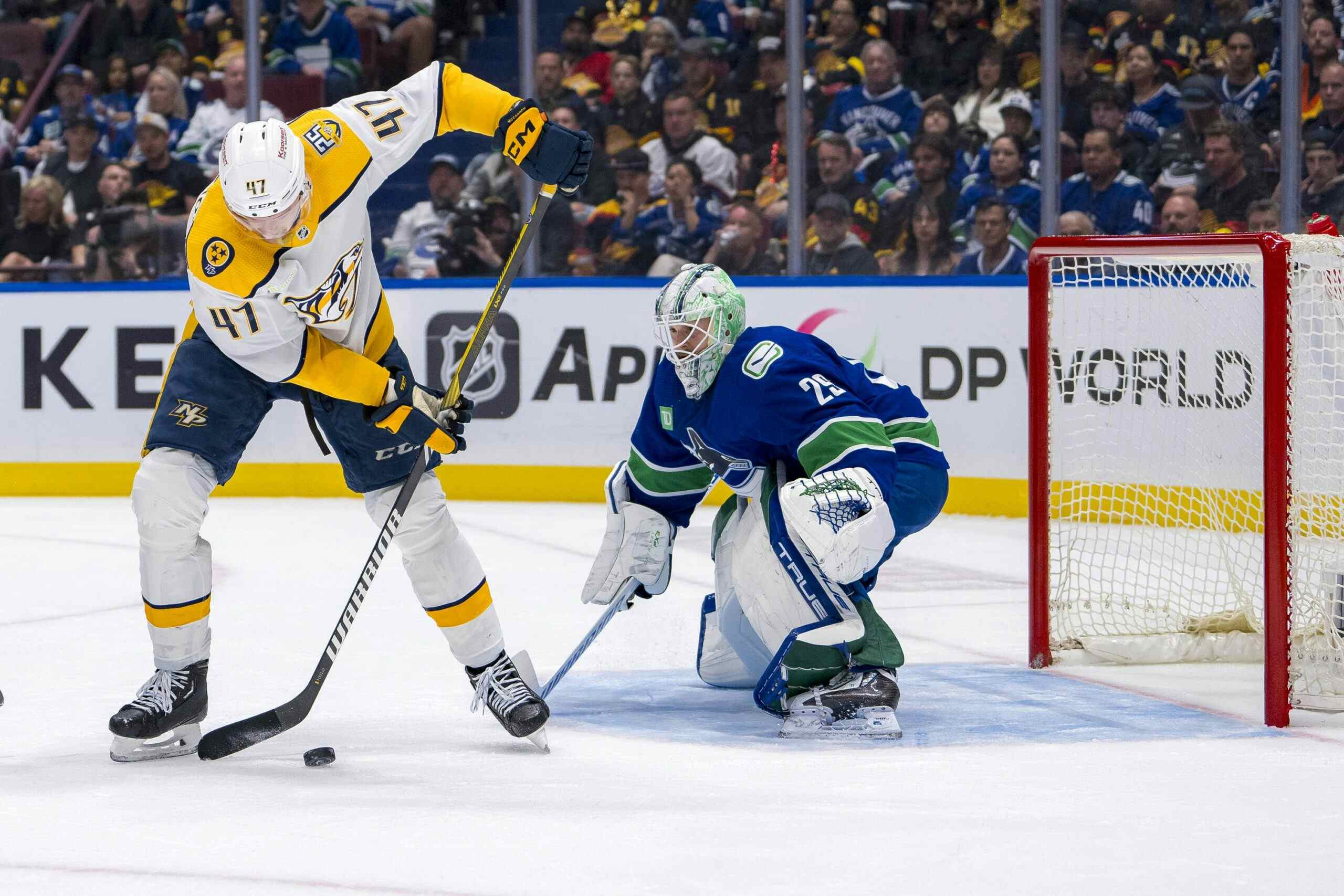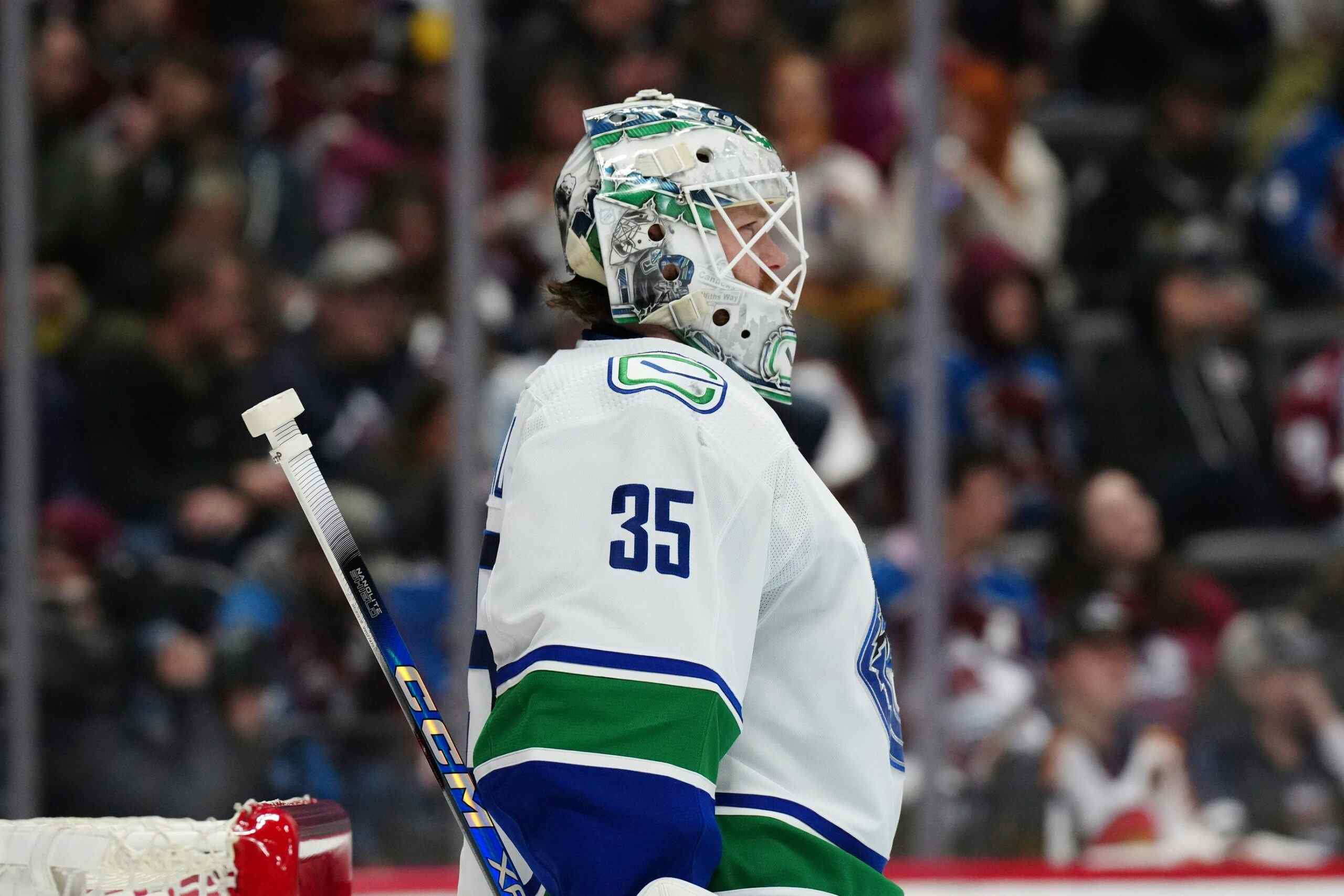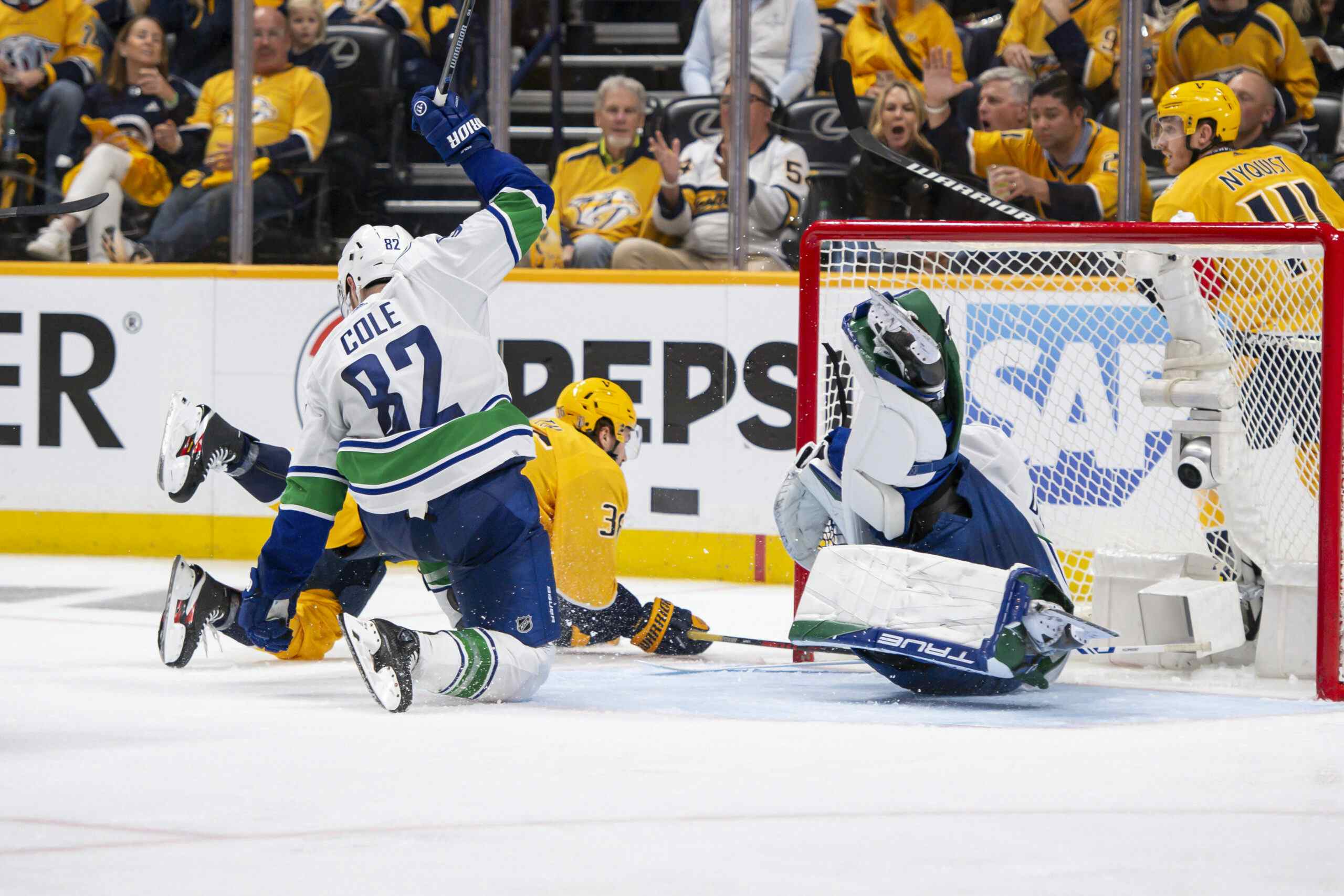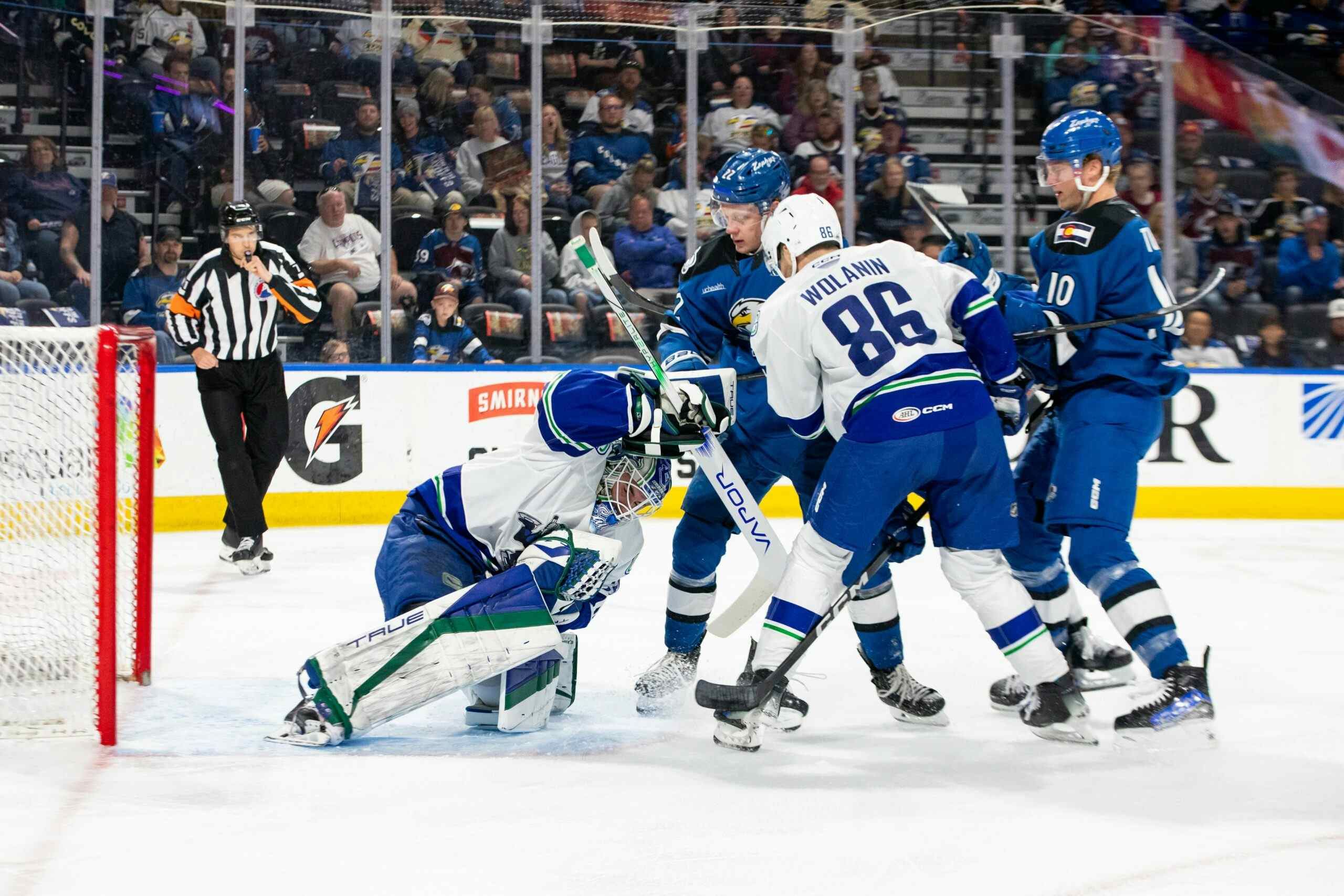Former Canucks Employee Craig MacTavish Critiques Mike Gillis’ Progressiveness
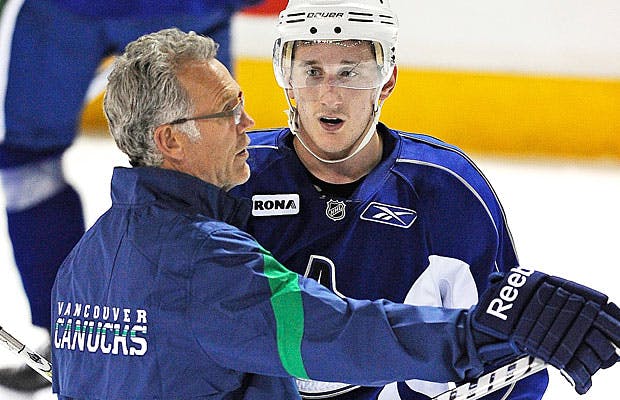
During the 2011-12 hockey season Craig MacTavish – the former Edmonton Oilers player and coach, and current Oilers front office executive – coached the Chicago Wolves who are the Vancouver Canucks’ American Hockey League affiliate. He was modestly successful and the Wolves racked up wins during the regular season before falling short in the first round of the playoffs against Jakub Markstrom and the San Antonio Rampage.
On Thursday, Craig MacTavish appeared with radio host Bob Stauffer on "OilersNow" and in a portion of the interview discussed and critiqued Mike Gillis’ "progressive" management style.
Read on past the jump.
I’ll start off by saying that, having watched his analysis on TSN, followed his teams closely in the past, and interviewed him following a Chicago Wolves win over the Toronto Marlies last March – it’s my impression that Craig MacTavish is a pretty sharp fellow. I’d even point out that the Oilers management team has made a series of relatively intelligent decisions (by Edmonton standards) since Mac-T joined their front office.
I also think he was pretty successful in Chicago, even though his Wolves team played a plodding style of hockey and deployed completely different systems than the Canucks do (which is a departure from how the likes of Claude Noel and Scott Arniel managed the old Manitoba Moose). Beyond the Wolves’ win/loss record with Mac-T at the helm, MacTavish’s influence on some of the young talent in the Canucks organization appears to have been wholly positive. Certainly he got the most out of Kevin Connauton, and there’s several Wolves players like Jordan Schroeder – who has impressed everyone with his two-way play through six NHL games – who have publicly credited MacTavish with teaching them an awful lot about the defensive side of the game.
Still, when MacTavish left the Canucks organization and joined the Edmonton Oilers as the Senior Vice President of Hockey Operations only a couple of hours later, it gave the impression that the Canucks and MacTavish weren’t necessarily the most comfortable of bed fellows.
I think all of that is pretty essential context, so let’s move on and lay MacTavish’s quote on the table. He was asked the following question by Bob Stauffer (transcription my own):
"In terms of what you did with them [the Canucks organization], did you pick up on some things in terms of maybe how they evaluated players how they wanted to develop players did they do some things differently than some other NHL teams."
Here’s how MacT responded (again, this is my own transcription):
"The one thing that Mike Gillis brings is a real progressive outlook. As we all are, he’s looking for new and creative and innovative ways to give ourselves a competitive advantage. You know those things at times cut both ways too, it’s good to try and incorporate some of these new wave ideas – because there are lots of them out there – but at times when you try and incorporate so many, and you bring in so many experts that it can be counter-productive.So there’s a real balance there to the amount of stuff you want to subject your players to and I know [the Canucks] wrestled with that to a certain degree last year. There were a lot of people around looking for players time, trying to get in front of the players, and as you know living the schedule and the timetable day in and day out, time is maybe the most valuable resource that we have – especially for the players. It’s a lot different now, then certainly when I played.The one thing I got from Vancouver was be open-minded, seek out new ideas, try and give yourself as much of a competitive advantage as you can. But at the same time there’s definitely a balance there. Sometimes you can go to far, and demand too much of your players that they’re burned out. And I think that’s something we really have to be careful about in the NHL in general, and especially during a season that there’s only going to be 48 games in such a short period of time."
Interesting stuff. It’s fair to describe MacTavish’s quote as a "critique," I think, but it’s not wholly negative and in some ways it echoes comments made by Mike Gillis himself. For example, Mac-T’s warning that you have to be particularly careful with this sort of stuff, "especially during a season where there’s only going to be 48 games" closely resembles Mike Gillis’ post-lockout comments about having less time to "experiment" in a shortened campaign.
I’d also note that, at the very least, Mac-T is complimentary about the Canucks’ open-mindedness. But that open-mindedness, or progressivism, or whatever you want to call it, comes at a price in MacTavish’s view. The implicit suggestion here is that perhaps the Canucks aren’t incremental enough about the adoption of some of these new ideas, and as a result they risk burning out their players. When you remember that Mike Gillis himself postulated that his team was burned out as a direct result of a particularly emotional regular season game in early January, MacTavish’s criticism seems pretty fair.
Let’s digress for a moment and break down what precisely it is that Craig MacTavish is critiquing. Mike Gillis has occassionally spoken about highfalutin concepts like "desiging success" for young players and his holistic "human performance plan," but we don’t know too much about the proprietary mix that goes into the cocktail. The Canucks General Manager was evasive in an interview with the Globe and Mail’s David Ebner about this topic, though Ebner did well to summarize the public information about Vancouver’s plan:
"Gillis doesn’t want to talk about details, but hints that parts of the puzzle have percolated over the past year or two. Some pieces: the deal (exclusive in hockey to the Canucks) with Fatigue Science, a sleep-management company that uses technology created by the U.S. military; a radical on-ice deployment strategy of certain players, such as the Sedins, who start an inordinate number of shifts in the offensive zone; the use of advanced statistics, far beyond plus-minus and goals for and against, to assess potential player acquisitions; the analysis of fatigue through games, using data and academic research from sports such as soccer; a special juice for players formulated by scientists at the University of California, Los Angeles; compression machines to flush lactic acid from tired legs; psychological counselling from MindRoom Sports Science Inc."
There’s an awful lot to chew on, and those are just the facets of the plan that we know about! When you read over that list, and remember that there’s probably a whole lot more to it than that, on a common sense level one can understand why "overload" might be an issue of concern.
That said, I think Mike Gillis’ record kind of speaks for itself here. Looking beyond the impressive win/loss record, there’s suggestive evidence that at least some of Gillis’ innovative efforts have paid off in allowing the Canucks to ice a club that is consistently "fresh" (or as "fresh" as possible). During the Mike Gillis era, for example, the Canucks have gone from being a piss-poor road team to a consistently excellent one and they’ve also posted some extraordinarily impressive third period splits.
Perhaps there’s a downside to some elements of Mike Gillis’ "human performance plan," and certainly Craig MacTavish would be more informed to speak to that than I would be. But so long as the wins keep coming as consistently as they have with Mike Gillis in charge, it’s hard to argue that there’s more downside than upside to whatever competitive advantage the Canucks management team has found (or thinks they’ve found).
You can hear MacTavish’s interview in full here.
Recent articles from Thomas Drance

